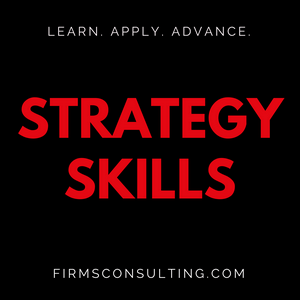Nidhi Tewari, a highly sought after wellbeing and work culture speaker who applies her experience as a licensed therapist to the work world, has spent more than a decade advising high-performing leaders on burnout, trauma, communication, and work culture. In this conversation, she brings a clinician's precision to a topic many organizations still treat superficially: why capable professionals disengage, shut down, or burn out and what leaders can do differently.
Tewari's perspective is grounded in personal experience. After burning out multiple times and experiencing the sudden loss of her best friend, she recognized that burnout is not only psychological but physiological. Elevated stress markers, chronic exhaustion, and a dysregulated nervous system are not signs of weakness; they are signals. The first insight is simple but often ignored: professionals override subtle cues from their mind and body until the body forces a reset. Sustainable performance requires noticing those cues early.
Second, she explains how nervous system regulation shapes leadership behavior. Many high achievers operate in a chronic stress state, alternating between hyper-vigilance and shutdown. Tewari introduces a practical framework, RESET: recognize reactions, identify emotions, soothe the body, explore the root, and tell the story safely, to move from reactivity to deliberate response. Techniques such as 4-7-8 breathing are not wellness trends; they are tools to regain cognitive control before making consequential decisions.
Third, she addresses trauma directly. Workplace dysfunction, toxic leadership, and persistent undermining can create patterns that resemble clinical trauma. Drawing on her specialization in EMDR therapy, she explains how unresolved experiences shape beliefs such as "it's my fault" or "I'm not good enough," which then influence professional conduct. Processing those beliefs changes not only emotional resilience but executive presence.
Fourth, Tewari reframes burnout as a systems problem. Individual interventions, self-care seminars and boundary workshops, miss the root causes. Isolation, lack of trust, unclear expectations, and the sense that one does not matter are primary drivers. Her research on attuned leadership shows that when leaders respond with moment-to-moment relational awareness, productivity and psychological safety improve. Burnout declines when connection rises.
Fifth, she differentiates emotional intelligence from relational intelligence. The latter includes flexibility, reading cues, self-regulation, and collaboration. In an AI-enabled workplace, these human capabilities become strategic assets. AI can analyze data and refine language, but it cannot read tension in a room, detect subtle distress, or repair a damaged professional relationship. Leaders who master attunement, adjusting tone, pace, and posture to meet the moment, will distinguish themselves.
The discussion closes with a practical lens on communication styles: fixers, avoiders, connectors, and explorers. The explorer—curious, measured, and willing to ask "help me understand more"—creates psychological safety without centering themselves. That shift alone can alter team dynamics.
For senior professionals, the message is direct. Performance is inseparable from physiology. Leadership is inseparable from self-awareness. And sustainable results require disciplined attention to how people feel, not only what they produce.
Get Nidhi's book, Working Well, here: https://tinyurl.com/mr2tfvh8
Claim your free gift:
Free gift #1
McKinsey & BCG winning resume
www.FIRMSconsulting.com/resumePDF
Free gift #2
Breakthrough Decisions Guide with 25 AI Prompts
www.FIRMSconsulting.com/decisions
Free gift #3
Five Reasons Why People Ignore Somebody
www.FIRMSconsulting.com/owntheroom
Free gift #4
Access episode 1 from Build a Consulting Firm, Level 1
www.FIRMSconsulting.com/build
Free gift #5
The Overall Approach used in well-managed strategy studies
www.FIRMSconsulting.com/OverallApproach
Free gift #6
Get a copy of Nine Leaders in Action, a book we co-authored with some of our clients:
www.FIRMSconsulting.com/gift


